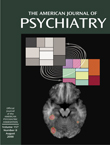Outcome Predictors for the Cognitive Behavior Treatment of Bulimia Nervosa: Data From a Multisite Study
Abstract
OBJECTIVE: The aim of this study was to discover clinically useful predictors of attrition and outcome in the treatment of bulimia nervosa with cognitive behavior therapy. METHOD: Pretreatment, course of treatment, and outcome data were gathered on 194 women meeting the DSM-III-R criteria for bulimia nervosa who were treated with 18 sessions of manual-based cognitive behavior therapy in a three-site study. Differences between dropouts and nondropouts and between recovered and nonrecovered participants were first examined descriptively, and signal detection analyses were then used to determine clinically significant cutoff points predicting attrition and abstinence. RESULTS: The dropouts were characterized by more severe bulimic cognitions and greater impulsivity, but it was not possible to identify clinically useful predictors. The participants with treatment failures were characterized by poor social adjustment and a lower body mass index, presumably indicating greater dietary restriction. However, early progress in therapy best predicted outcome. Signal detection analyses revealed that poor outcome was predicted by a reduction in purging of less than 70% by treatment session 6, allowing identification of a substantial proportion of prospective failures. CONCLUSIONS: A cutoff point based on reduction of purging by session 6 usefully differentiates patients who will and will not respond to cognitive behavior therapy for bulimia nervosa, potentially allowing early use of a second therapy.



